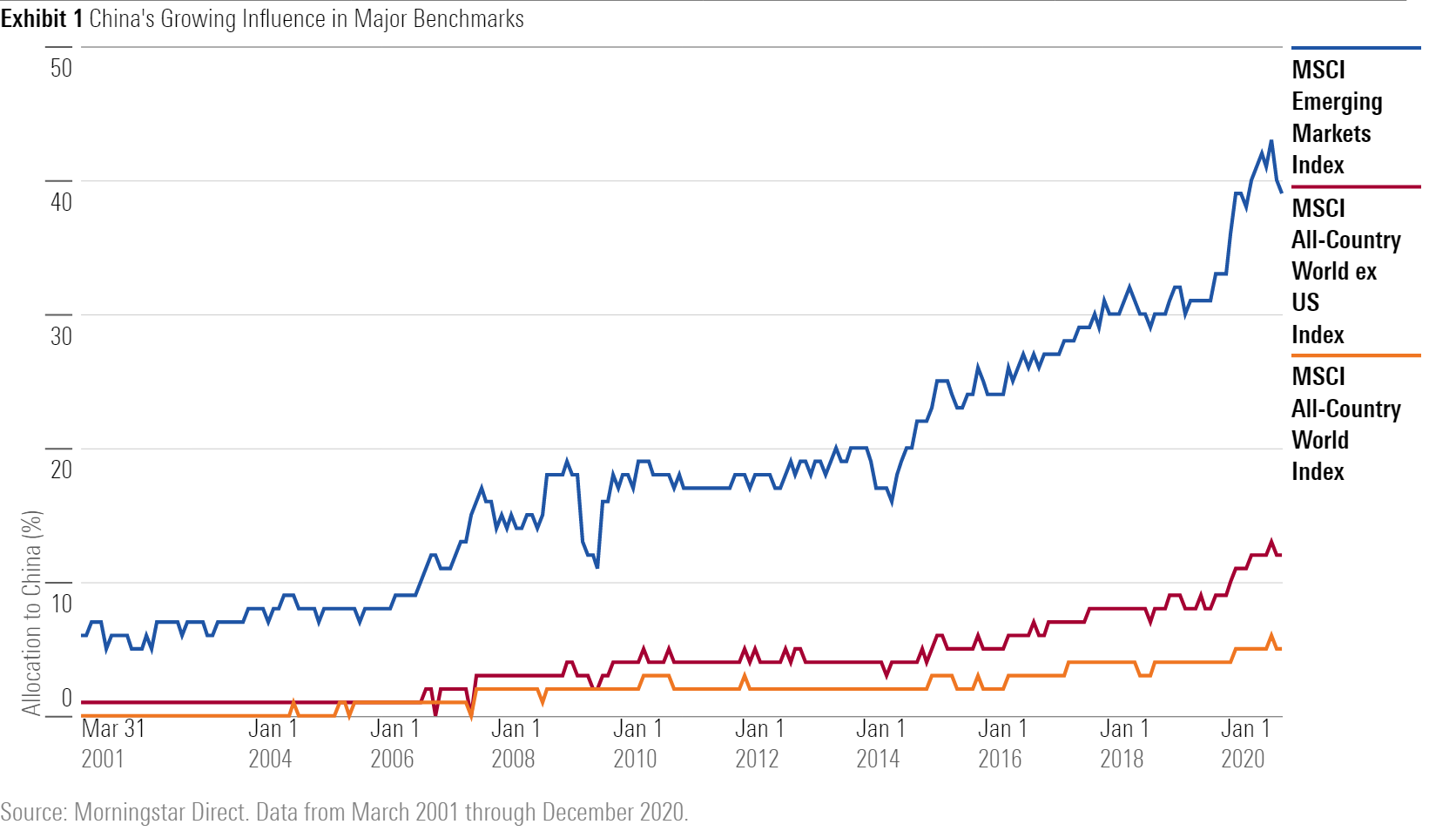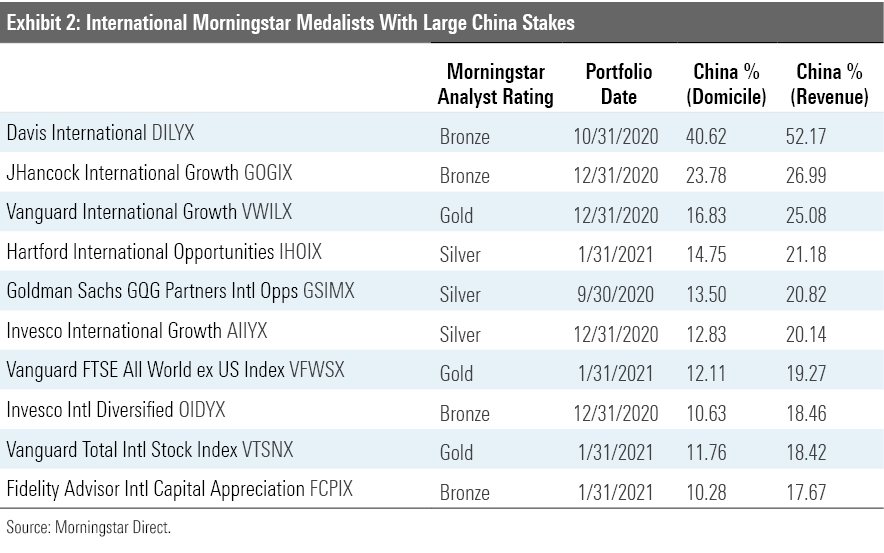Manager Question of the Month: The China Conundrum
Stock fund managers consider the trade-offs of investing in China.
Chinese markets have given active equity managers a lot to think about recently. Rocky U.S.-China trade relations have grabbed headlines and tied up global supply chains. A recent U.S. executive order blacklisted 31 companies suspected of aiding the Chinese military. Within its borders, China intervened in Ant Group’s highly anticipated $37 billion IPO at the 11th hour and ramped up antitrust scrutiny on the country’s dominant tech names, most notably Alibaba and Tencent. All this comes as the country tries to exert more control over Hong Kong, skirmishes over borders with India, and persecutes Uyghurs in its western provinces.
Manager research analysts recently asked of the fund managers they regularly interview, “Do recent events make you more hesitant to invest in Chinese companies, and if yes, have you taken specific action?” The managers provided some interesting takeaways. Though the managers polled remained steadfast in their pursuit of new opportunities in China, tit-for-tat trade restrictions have irritated investors and changed how some of them view risk. Still, asset managers remain bullish on China’s Internet giants.

Managers’ attitudes toward Chinese firms haven’t changed. The New York Stock Exchange, after balking numerous times, agreed in January to delist three major Chinese telecom firms: China Mobile, China Telecom, and China Unicom. Of the three, China Mobile was the most widely held, and we spoke with several managers who had to sell. The delistings haven’t discouraged the managers from pursuing other attractive Chinese opportunities. Many believe the country’s emerging middle class should provide fertile investment chances for companies well-positioned to grow with it.
The recent controversies have, however, forced some managers to change the way they evaluate risk. Some expect geopolitical tensions to remain heightened for the foreseeable future and are sifting through the investment universe to determine which firms could become targets of further regulation. One manager is even considering the ramifications of a complete U.S.-China split, forcing global companies to select sides. Currently, U.S. Internet companies are mostly blocked from operating within China by the country’s Great Firewall, while Chinese firms face relatively fewer hurdles to operating globally. While that structure has been in place since the mid-2000s, it looks increasingly untenable to this manager, and could serve as a guide for future relations across all industries.
Asset managers also must contend with recently heightened antitrust scrutiny on the largest Chinese Internet firms. While they avoided blacklisting threats from the United States, Alibaba and Tencent are in the Chinese government’s crosshairs, as are several other emergent Chinese e-commerce firms like JD.com JD, Meituan, and Pinduoduo PD. This more uncertain environment has led some managers to set higher return thresholds for potential Chinese investments and led others to focus on less recognizable firms that avoid the increasingly harsh spotlight.

The managers we spoke with, however, remain bullish on the two Chinese Internet behemoths, Alibaba BABA and Tencent. They blame bad headlines rather than deteriorating businesses for volatility in 2020’s fourth quarter, which harmed Alibaba’s share price more than Tencent’s. Indeed, many managers talked of buying more when the brief sell-off made valuations more attractive, even as they acknowledged the companies’ risks. Alibaba’s push into payments and consumer banking via Ant Group raised enough concerns to delay the latter’s planned IPO and forced it to cooperate more with China’s existing financial system. Meanwhile, Tencent’s successful overseas investments in firms like Tesla TSLA and Snap SNAP could draw more scrutiny from the Chinese government should it tighten its grip.
While the recent intrigues provided more ammunition for China sceptics, bulls remained optimistic. Finding opportunities, though, might require more managers to extend the scope of their analysis to include geopolitical and macroeconomic tensions going forward. For now, it seems the headlines haven’t deterred investors, though many have spent more time monitoring the risks they’re taking in China.

/s3.amazonaws.com/arc-authors/morningstar/cfa8a92a-3493-4cb4-80ba-e3af514136a0.jpg)
/cloudfront-us-east-1.images.arcpublishing.com/morningstar/HDPMMDGUA5CUHI254MRUHYEFWU.png)
/cloudfront-us-east-1.images.arcpublishing.com/morningstar/OMVK3XQEVFDRHGPHSQPIBDENQE.jpg)
:quality(80)/s3.amazonaws.com/arc-authors/morningstar/cfa8a92a-3493-4cb4-80ba-e3af514136a0.jpg)